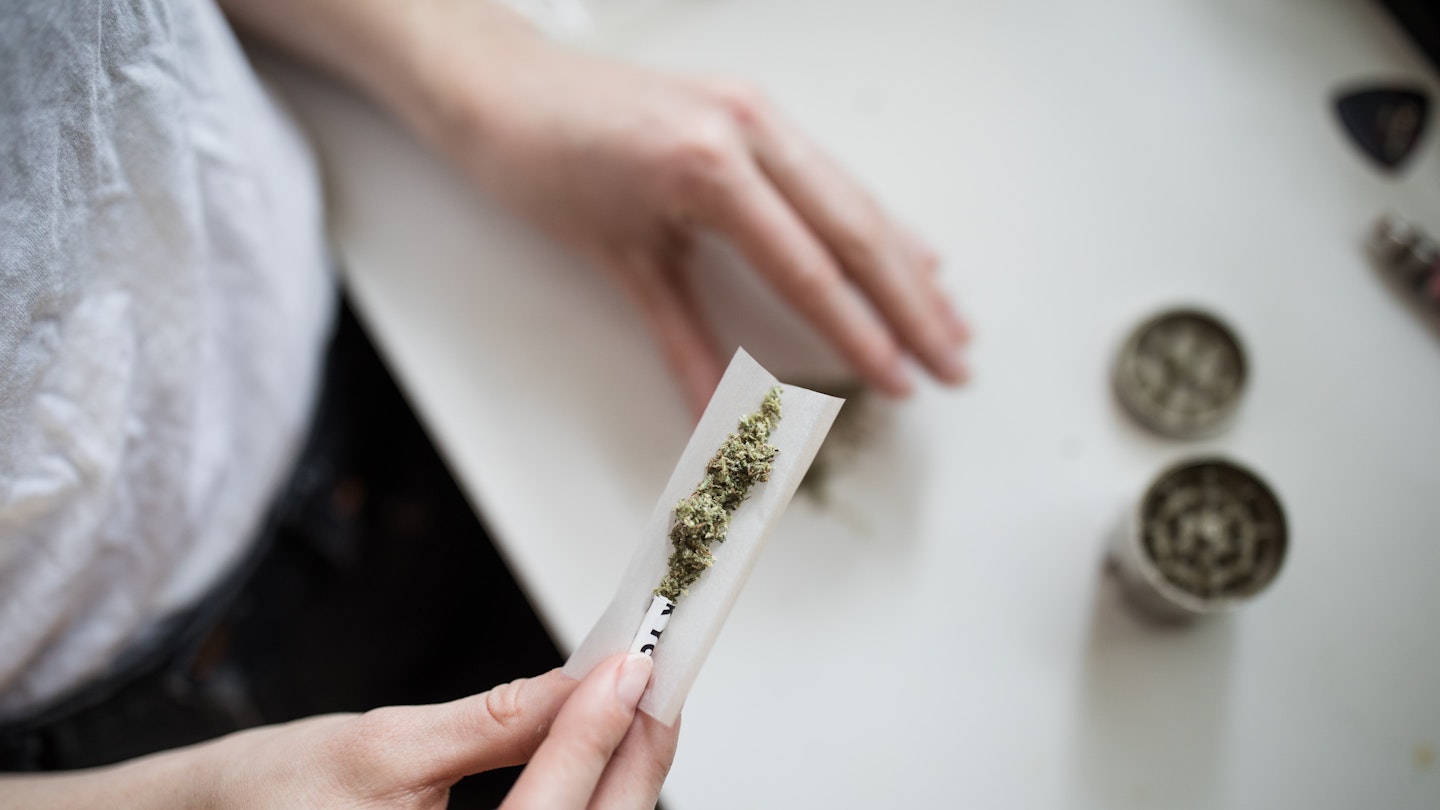‘I was diagnosed with PCOS when I was about 14/15. When I was first getting my periods [the pain] was so bad that I'd be off school for like a minimum of 3 or 4 days every period’, says Yasmin*, 30, a barrister with a sciences degree. Yasmin, like many women who suffer with a gynecological condition, has found that traditional medicine is either ineffective or too damaging in the long term to be a viable pain relief option. Instead, she smokes marijuana, and credits it as the only thing that allows her to maintain an active life on her period. She's not the alone, in fact Queen Victoria was famously the first woman to use marijuana for PMS back in the 19th Century.
For women like Yasmin, hearing that Canada has legalized the recreational use of cannabis is a big win, considering its implications on the possible legalization in the UK. In Britain, cannabis is illegal, and only a controlled cannabis-based substance can be prescribed under extreme circumstances whereby each person must apply to the Home Office for a license.
However, last week Home Secretary Sajid Javid announced a medical cannabis is set to be reviewed to address the recent string of high-profile cases whereby children with severe epilepsy were being denied access to cannabis oil which can control their seizures. Lady Meacher, chair of the all-parliamentary group for drug policy reform, called the decision a ‘no brainer’, stating that ‘about one million people, probably, could benefit from medical cannabis - people with severe pain’.
The organisation had previously conducted a report back in 2016, led by clinical psychologist Dr. Jennifer C Barnes and Professor Michael P Barnes, which recommended medicinal cannabis for chronic pain, anxiety, spasticity, nausea and vomiting after chemotherapy.
While the Royal College of General Practitioners (RCGP) regards the drug as unsafe, according to Clear UK, a cannabis law reform lobby group, the RCGP approved a proposal to create a booklet for all GPs, setting out 'balanced and reasonable advice on the appropriate use of cannabis for specific medical indications.'
While following Canada’s lead to legalise cannabis for recreational use is unlikely in the UK but allowing medical use of the substance is a long-awaited must for people dealing with chronic pain. Yasmin believes that her background in medicine combined with her chronic condition, means she’s in a unique position to understand just how useful it would be to legalise medical marijuana.
Yasmin started smoking recreationally at 19, convinced of the pain relief benefits while attending medical school. ‘I was working with a pain specialist whose medical expertise I thought incredibly highly of, and he was a big believer in the use of marijuana for pain relief, especially where other more traditional pharmacological things have not been helpful for patients’, she tells me, ‘this is someone whose understanding of the science goes 15 steps further than mine, so when you look up to someone and you understand that they’re knowledge and expertise in the field is better than yours, then it’s quite normal to take that information on board.’
Naturally, she started smoking to manage her painful periods, and found it to be more effective than anything else she’d tried. ‘My first symptom is lower back pain, I get it a couple of days before my period and it's really really bad, ‘she explained, ‘It's one of the things that makes it so hard to sit still or function or do stuff when I’m out and about and it lasts two to three days. So, I started smoking before the symptoms kicked in and I found that the whole period would go a lot easier than before, it would help the back pain, the associated headaches I get alongside it and it would really help with cramps a lot.’
With one joint providing her six hours of real pain relief where she can go about her normal life, traditional medicines simply do not compare. But it’s not just the incompetence of paracetamol and ibuprofen, even mefenamic acid – a prescribed pain killer that Yasmin says takes the edge of but doesn’t get you through it – it’s the damage these traditional medicines do to our bodies that Yasmin is against.
‘I’ve done autopsies on little old ladies that have just used a normal amount of aspirin, ibuprofen and paracetamol their whole lives, and it’s so damaging to your liver,’ she tells me. Much like alcohol, which according to Business Insider causes more deaths per year and more violent crime, the irony that we knock back traditional painkillers and consume copious amounts of alcohol, while scoffing at cannabis because of its legal status is laughable. But of course, there’s irony in Yasmin’s argument too, and it’s not lost on her. ‘Obviously I know smoking weed is damaging to my lungs,’ she says, ‘but it’s just made me a lot more functional, when I have my period I can get through them, I can sit in different positions and not have terrible back pain or cramps where I can’t think about anything else.’
Essentially, since unlike paracetamol or ibuprofen cannabis is actually an effective pain reliever, the pros very much outweigh the cons for Yasmin. However, the con of having to actively smoke does weigh on her mind, and it’s the one thing that could change if medical cannabis was legalized. 'I'm a smoker but I'd preferably not be’, she continues, ‘I'm talking about using marijuana because it’s better than other drugs and it's less damaging to my body than other drugs, but that only really applies if I’m not having to smoke to administer it’
With cooking marijuana is both not feasible - Yasmin lives in a shared house - and prone to causing her nausea - she notes that ‘if medicinal marijuana was a thing, we could be using oils, we could be using vapes, we would have a variety of different things where I could consume it without having to smoke and tear my lungs up’
Of course, there is currently CBD oil on the market, but according to Yasmin, it doesn’t perform the same way that cannabis does for her. ‘It's a synthetic compound that acts, allegedly, on the same receptors in the brain that marijuana does’ she tells me, ‘so it’s not the same thing, it doesn’t mimic all of its properties and it's more for recreational use than anything else, it gives you a little bit of a high but it didn’t do the same pain-relieving stuff for me that smoking a joint does.’
With a 2016 survey by Populus (on behalf of Volteface) finding that 58% of MPs back the legalization of medical marijuana, and Canada becoming the second country in the world to legalise it recreationally, there is hope for women like Yasmin. However, there may need to be further research into the effects of using it specifically for period pain.
'Patients ask me about it all the time,' Dr Lauren Streicher, a leading gynecologist, told the Daily Mail, 'It could be that in five years it's the first thing I recommend. But right now we need a trial into it. There simply isn't enough research to say one way or the other.'
It's unsurprising that there has not been enough research into using cannabis to treat gynecological conditions. As we have seen with most developments in women’s health issues, the research has not been done and the world tends not to care. If Yasmin’s story proves anything it’s that very point - since she clearly feels that she has no other option than an illegal drug to manage her pain. And she's not alone, she joined a whole host of women who have historically used cannabis for period pain, including the late Queen Victoria who was famously the fir
However, with a new spotlight on women’s health (finally) and more people than ever able to benefit from medical marijuana, women dealing with PCOS, endometriosis and beyond might just be in with a win.
*name has been changed
if you suffer from PCOS or painful periods, always consult your GP
Click through to see the harrowing facts about the contraceptive pill and it's impact on women...
Debrief Mad About The Pill Stats
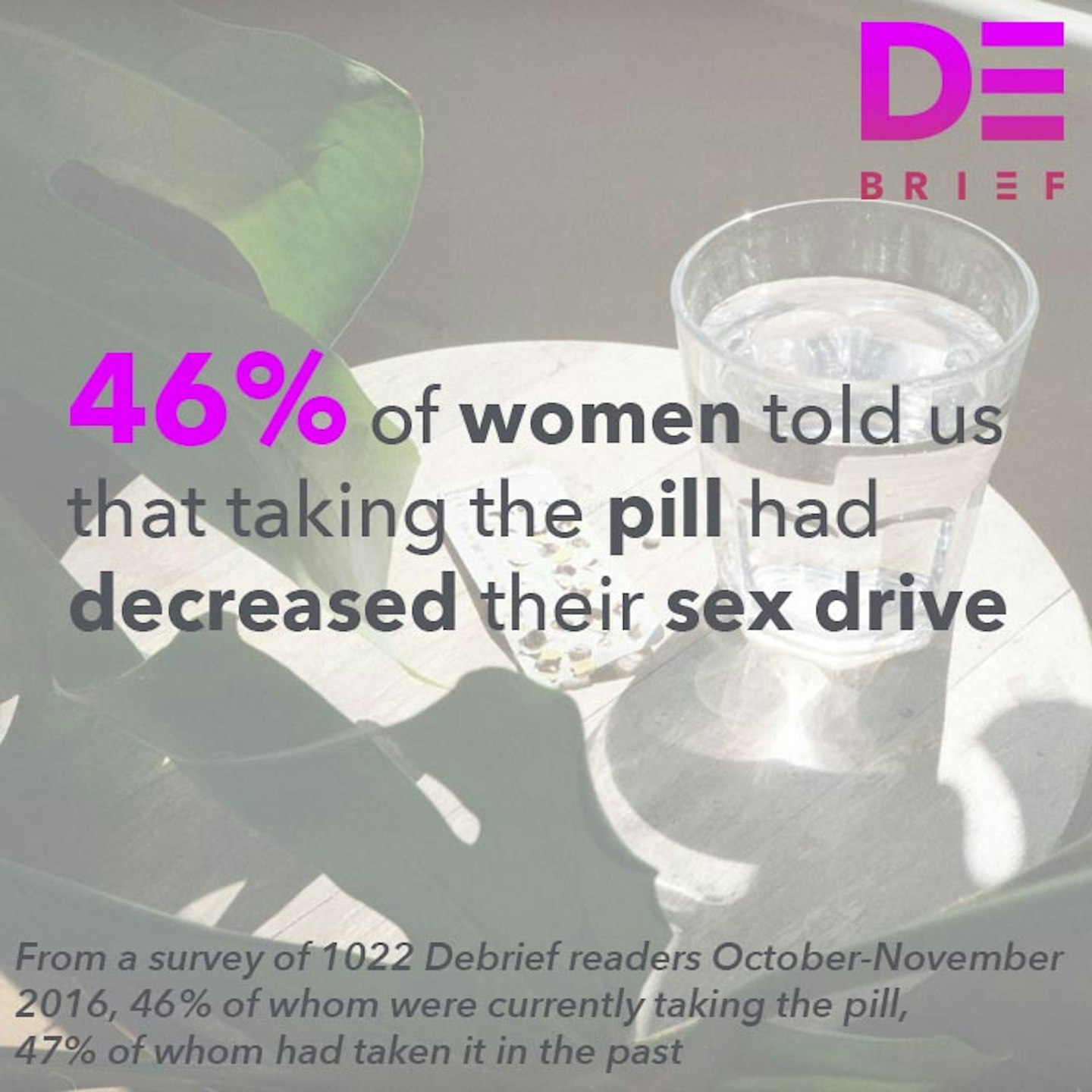 1 of 9
1 of 9Debrief Mad About The Pill Stats
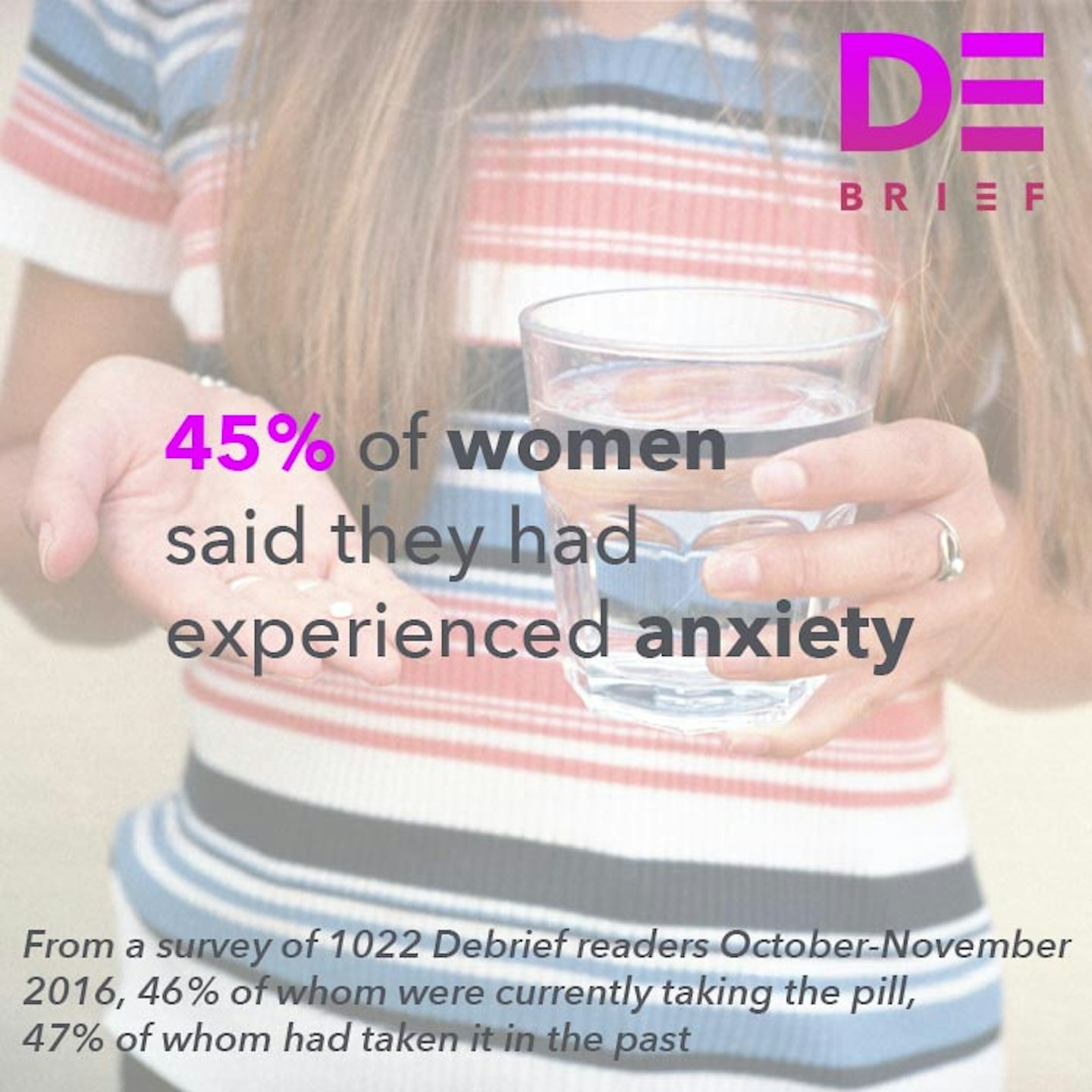 2 of 9
2 of 9Debrief Mad About The Pill Stats
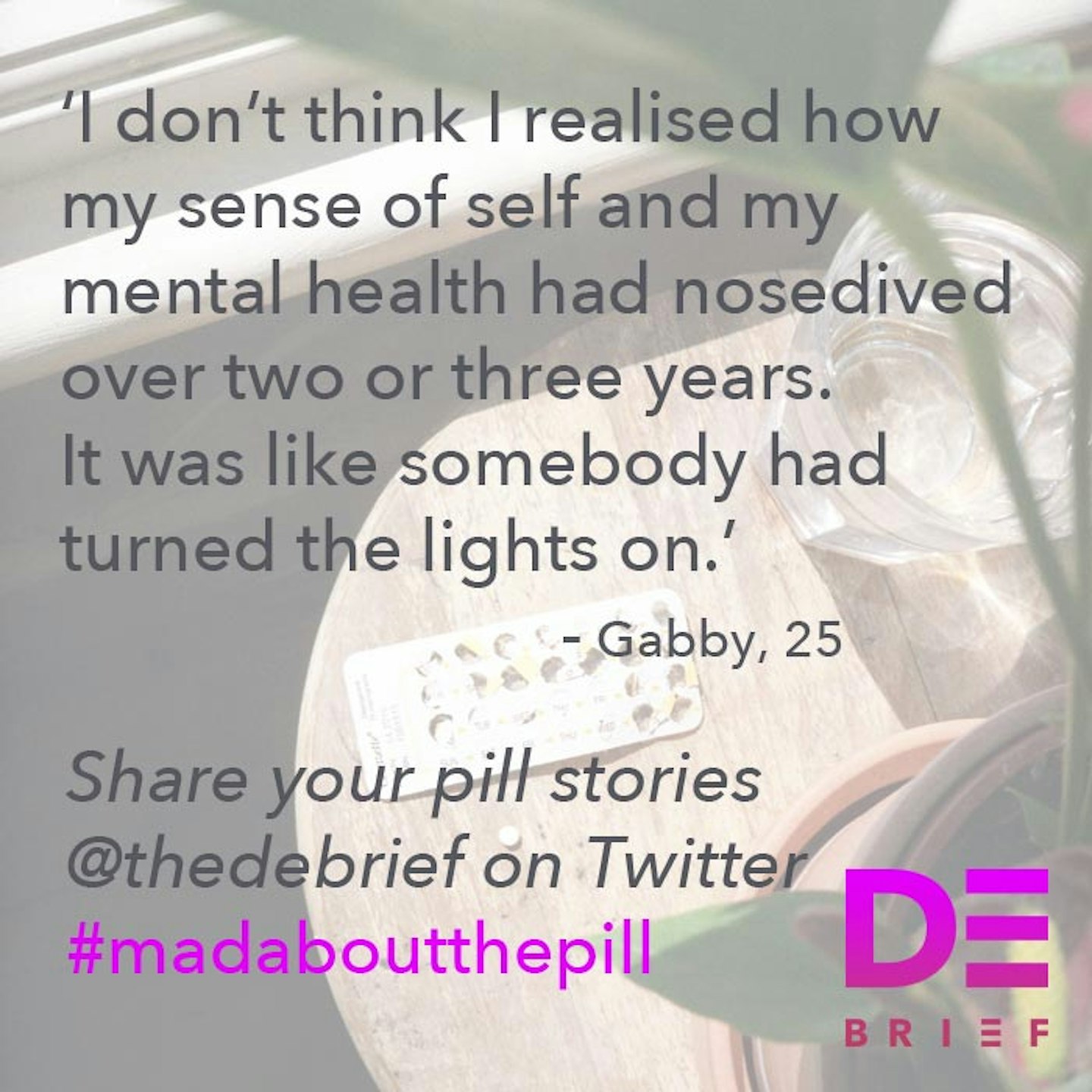 3 of 9
3 of 9Debrief Mad About The Pill Stats
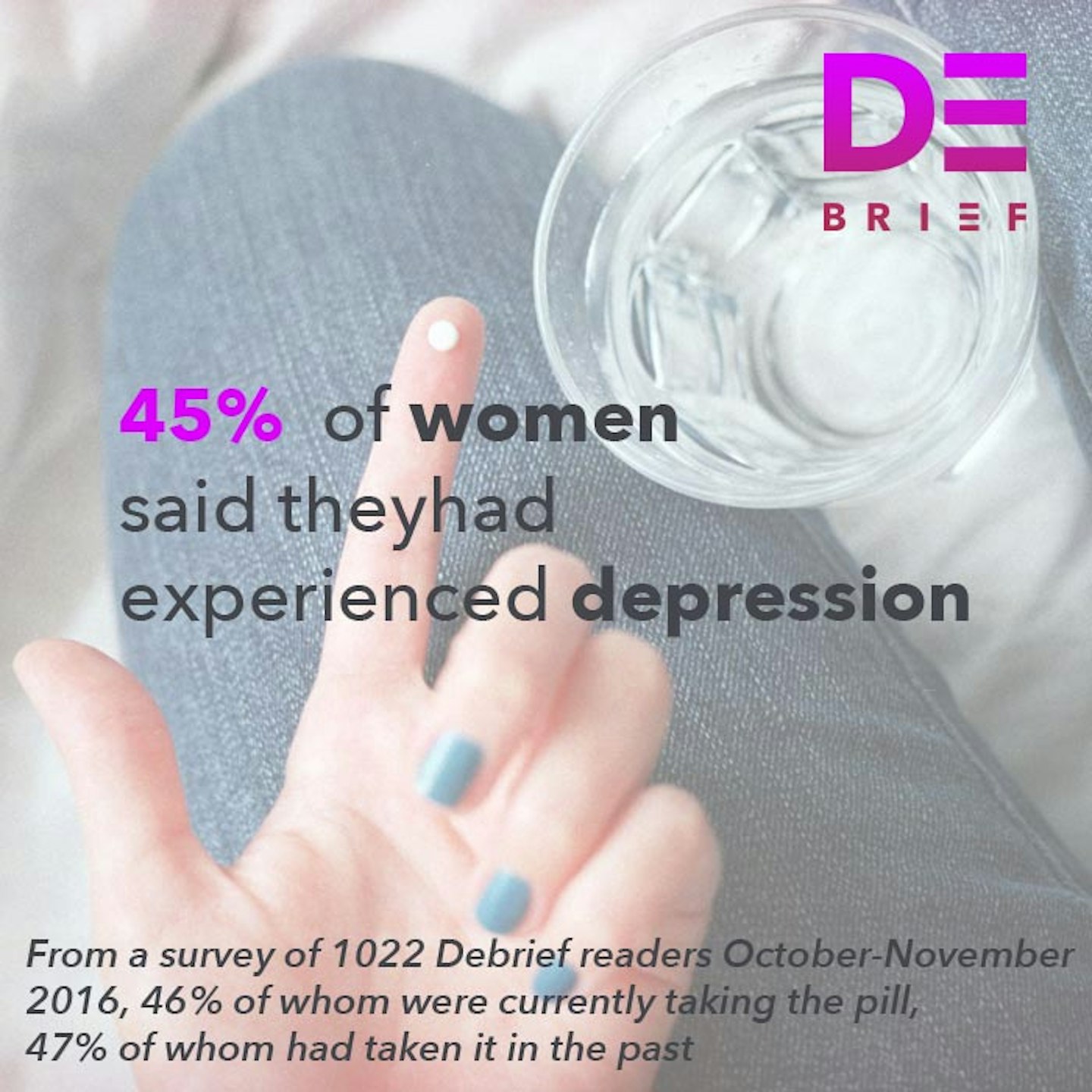 4 of 9
4 of 9Debrief Mad About The Pill Stats
 5 of 9
5 of 9Debrief Mad About The Pill Stats
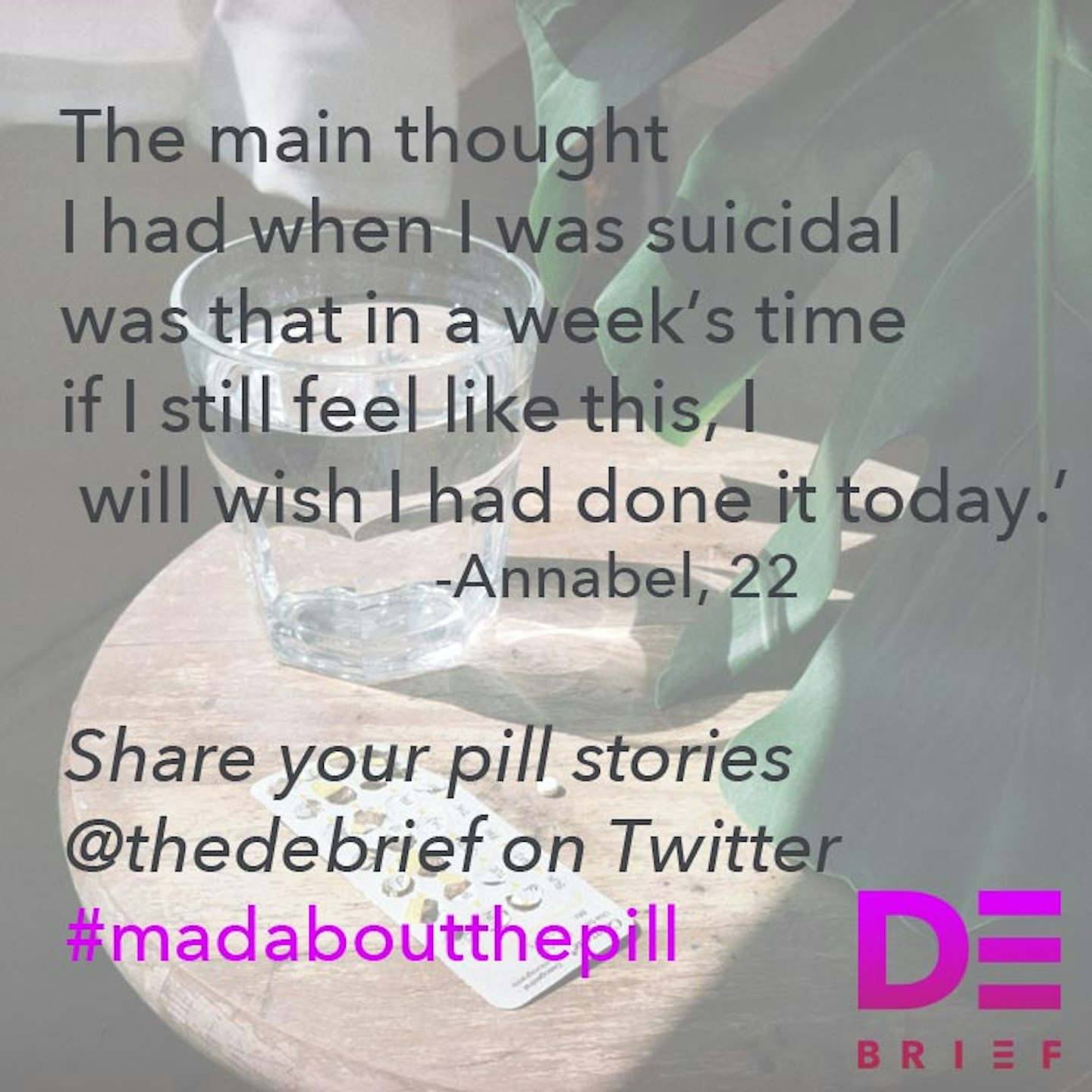 6 of 9
6 of 9Debrief Mad About The Pill Stats
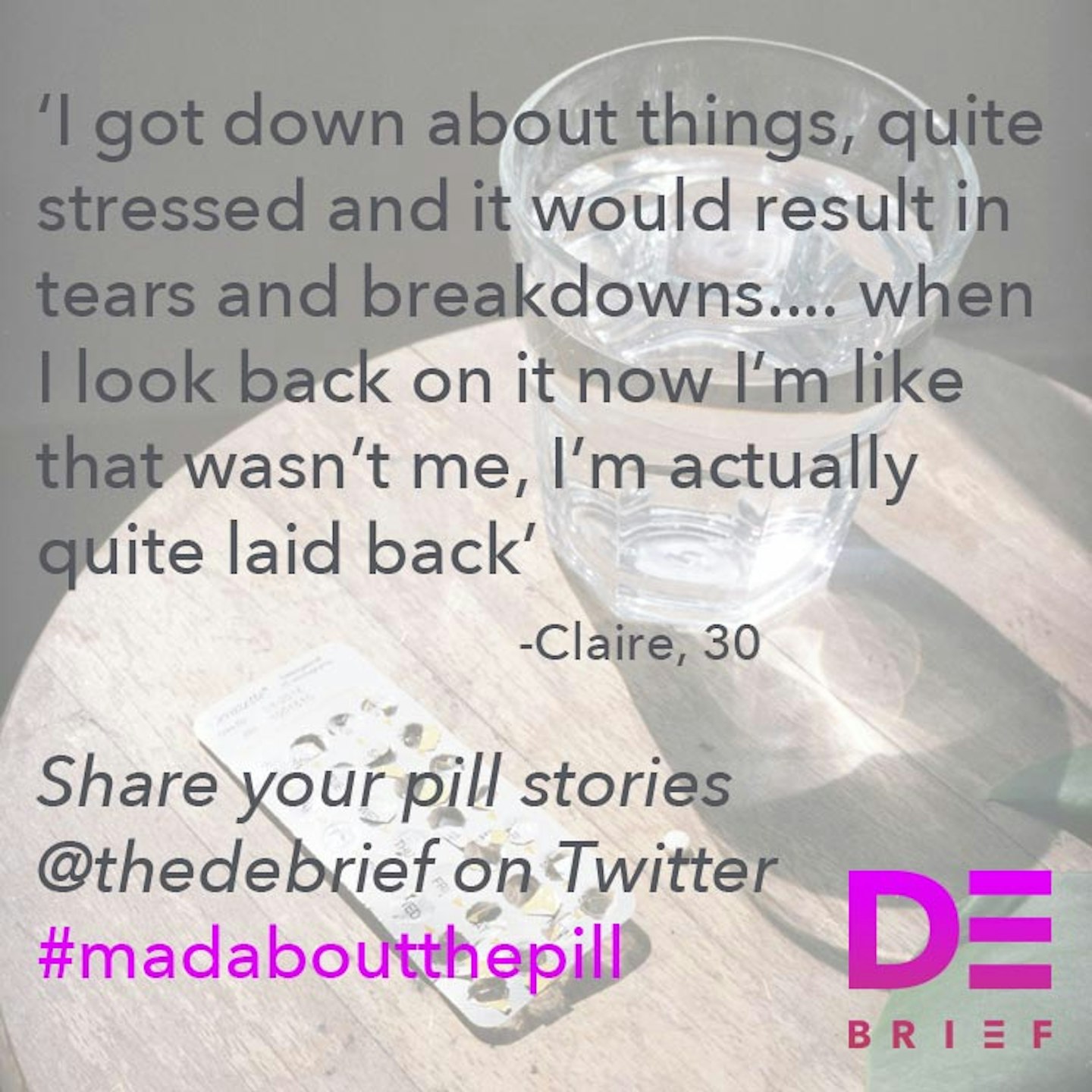 7 of 9
7 of 9Debrief Mad About The Pill Stats
 8 of 9
8 of 9Debrief Mad About The Pill Stats
 9 of 9
9 of 9